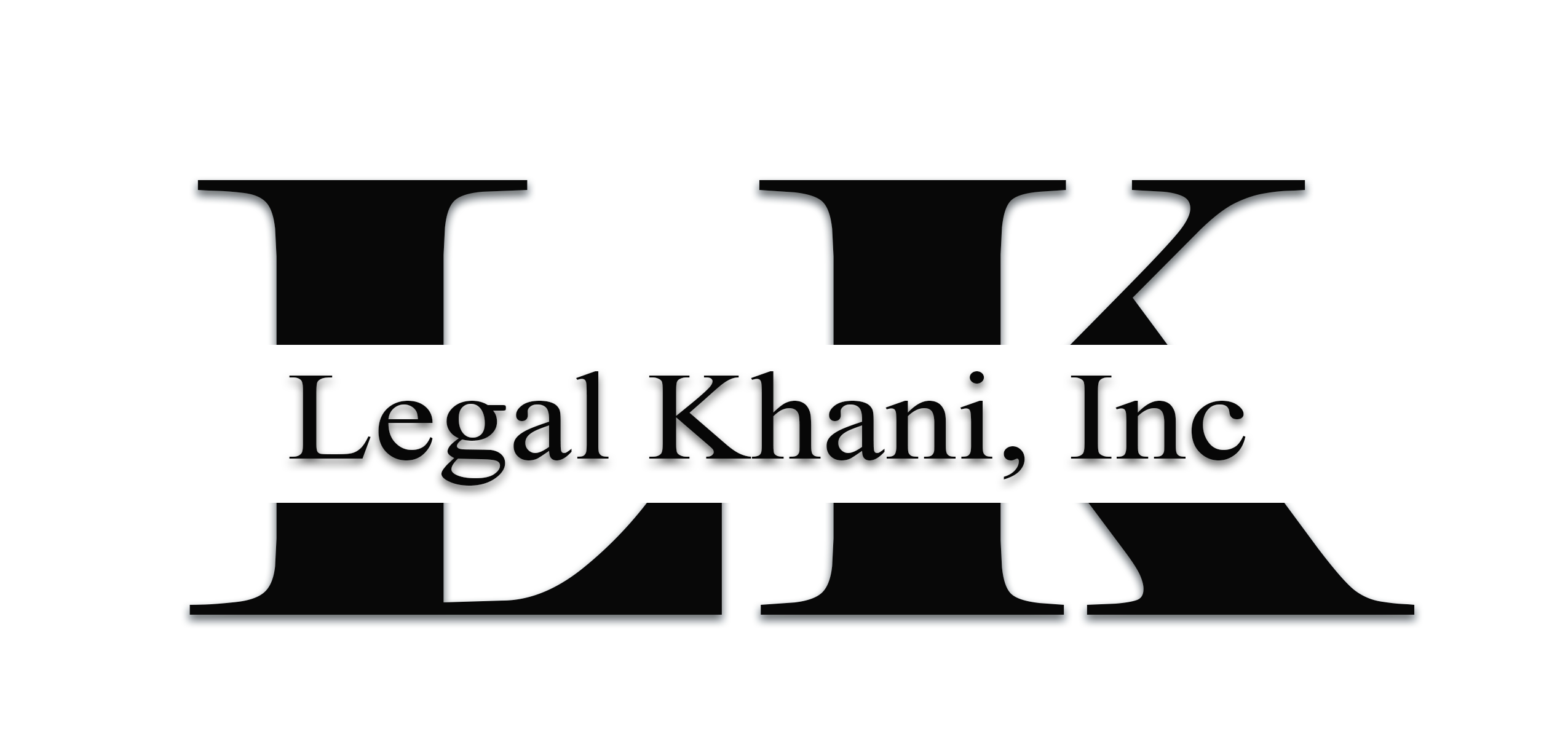
Legal Document Assistant
LDA #: 2019118291
(818) 714-0191
contact@legalkhani.com
6355 Topanga Canyon Boulevard #350
Woodland Hills, CA 91367
Estate Planning
Why do I need a trust?

Establishing a Trust is an important step for anyone seeking to protect their assets, provide for their loved ones, and secure their long-term financial goals. While some individuals may believe that a Trust is unnecessary if they have few assets or no dependents, the reality is that a properly structured Trust can provide numerous benefits regardless of one's circumstances. For example, a Trust can help to minimize the costs and delays associated with probate, avoid unnecessary taxes, and ensure that one's assets are distributed in accordance with their specific wishes. Additionally, by naming a trusted individual as trustee, one can provide for the management of their assets and financial affairs in the event of incapacity or death, providing greater peace of mind and security for themselves and their loved ones. Ultimately, whether you have significant assets or only a modest estate, a Trust can offer a range of advantages that can help you achieve your estate planning goals and protect your legacy for generations to come.
Benefits
Cost Savings
By establishing a trust, individuals can potentially reduce the costs associated with transferring assets to their heirs. Trusts can often help to minimize estate taxes, which can be a significant expense for some families.
Probate avoidance
One of the key benefits of a trust is that it allows assets to pass directly to heirs without the need for probate court proceedings. This can help to minimize legal fees and court costs, and can also speed up the distribution of assets to beneficiaries.
Asset control
By establishing a trust, individuals can retain greater control over how their assets are distributed and managed after their death. Trusts can be tailored to meet specific needs and can include provisions for managing assets in the event of incapacity or other unforeseen circumstances.
Time savings
Trusts can also streamline the asset transfer process, allowing heirs to receive their inheritance more quickly and efficiently. This can be particularly helpful in cases where there are complex assets or multiple heirs involved.
Privacy protection
Unlike wills, which are public documents, trusts offer a greater degree of privacy protection. Trusts are typically not subject to public recordkeeping requirements, which can help to keep sensitive information about assets and beneficiaries confidential.
About Mehrnoush H. Khani

Mehrnoush H. Khani is an experienced legal professional with over 30 years of expertise in the field. She received her undergraduate degree in civil law from University Paris II and her graduate degree in notarial law from University Paris X. Her thesis compared matrimonial regimes in France and the US, reflecting her strong academic background.Mehrnoush practiced non-contentious private civil law and specialized in private law, including family law, estate planning and testamentary law, conveyancing and property law, the law of agency, and company law. She assisted private parties in drafting and recording legal documents.Since moving to Los Angeles in 2007, Mehrnoush has focused on Estate Planning and testamentary law. She pursued specialized courses at UCLA to further develop her knowledge and skills in these areas. As a registered LDA (Legal Document Assistant) in Los Angeles, she is authorized to assist clients in the preparation of their legal documents.Mehrnoush is fluent in English, French, and Farsi, which makes her an asset to any legal field.
Services
Living Trust
A living trust is a legal instrument that enables individuals to hold and manage their assets both during their lifetime and after their death, while also providing for the distribution of those assets. In the event of incapacity, a named successor trustee can manage the affairs of the trust on behalf of the beneficiary. Because assets held in a living trust are not subject to probate, the trust provisions can be kept private, allowing for greater privacy protection.
Wills
A carefully crafted will provides a vital mechanism for ensuring that your assets are distributed and administered in accordance with your specific wishes and preferences. By taking the time to thoughtfully designate your beneficiaries, assets, and instructions, you can help to minimize potential conflicts and ambiguities, and provide a clear path for the management of your estate. Additionally, a properly executed will can offer peace of mind, knowing that your legacy will be managed in accordance with your own values and priorities.
Heath care Directive
This type of power of attorney is specifically intended to authorize your agent to make critical healthcare decisions on your behalf in the event that you become unable to do so yourself. To ensure that such powers are effective when needed, they must be established as durable powers of attorney, meaning that they remain valid even if you are incapacitated or unable to communicate. By granting this authority to a trusted individual, you can help to ensure that your medical treatment preferences and directives are honored, even if you are unable to provide input directly.
Trust Administration
The process of administering a trust after the trustor's passing involves certain expenses until the trust's assets are fully disbursed. This undertaking, commonly referred to as Trust Administration, involves a range of tasks and duties that the trustee must perform according to the instructions and powers outlined in the Trust document. In this way, the Trust document serves as an authoritative guide for the trustee, providing clear direction on the use of certain powers to effectively manage the trust's assets and liabilities.
Durable Powers of Attorney
A power of attorney (POA) is a critical legal instrument that permits you, as the "principal," to delegate decision-making authority to another individual, typically referred to as the "agent" or "attorney-in-fact," to act on your behalf. Granting such authority to someone else is a crucial component of a comprehensive estate plan, as it ensures that your financial and legal affairs are handled in accordance with your wishes and objectives, even if you become unable to do so yourself. It is worth noting that, so long as you maintain the necessary legal capacity, you have the ability to revoke a POA at any time, by providing written notice to your agent.
© Legal Khani, Inc. All rights reserved.